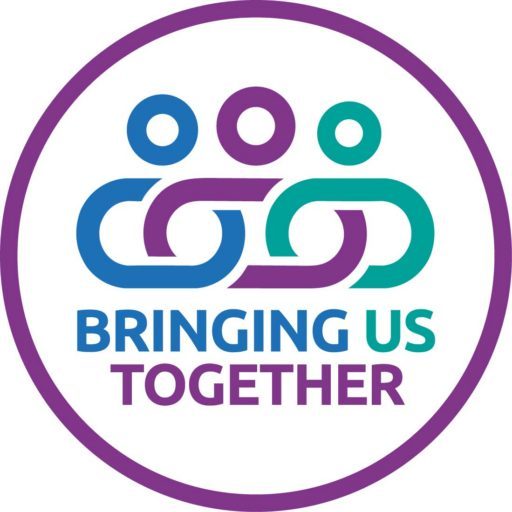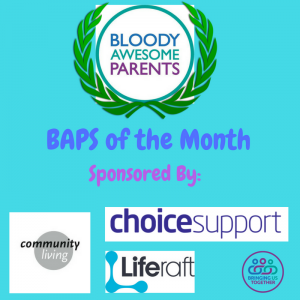Parent Groups – Egos
We continue with our tips on running a successful parent group. So far, we have looked at Values, Communication and Measuring Success. This week we look at the difficult issue of Egos. Groups are often formed of similar types of people – which can be great – but it can cause real conflict if the similar people clash.
One of the big issues many groups face is dealing with egos.
Ego: a person’s sense of self-esteem or self-importance.
Everyone has an ego. Egos are not necessarily a bad thing. However, sometimes egos can cause huge problems.
Having a sense of self-esteem and appreciating what you bring to a group is a good thing.
Knowing what you contribute to a group is invaluable and can give you a real boost.
 Many times you will hear people say “I don’t know what I can do, but I am happy to get involved and do what needs to be done” and these people are the ones you want. These are the people who come to the group without an ego or without a hidden agenda. These are the people who will “do” rather than just talk. These are the people who just genuinely want to make a difference to others. They usually arrive without an ego that needs any validation.
Many times you will hear people say “I don’t know what I can do, but I am happy to get involved and do what needs to be done” and these people are the ones you want. These are the people who come to the group without an ego or without a hidden agenda. These are the people who will “do” rather than just talk. These are the people who just genuinely want to make a difference to others. They usually arrive without an ego that needs any validation.
It is nice though to feel appreciated for what you do, especially when many parent groups work on a totally voluntary basis. Helping someone to have a sense of self esteem is a positive experience.
However, it is when the ego becomes about the sense of self-importance that big issues arise. If you have a group and you have worked out the values and the goals and communication is working well, there is still the chance that the issue of egos – based on a sense of self importance – can still arise.
Knowing that this can happen and having strategies in place to avoid this or to deal with it is essential.
Why is the person acting like this?
- Are they a team player? Many people are not team players. If you know who the team players are in your group, then give them team roles. If you know someone doesn’t work well as part of a team, then maybe look if there is a role they can take on which doesn’t involve constant contact with others.
- Have they maybe contributed a lot and received no thanks or acknowledgement? Do you have an agenda item which looks at success within the group, to celebrate that success? Do you have an agenda item or opportunity to say thanks to individuals for their contribution? Some people are happier without a public acknowledgement of thanks but some people like them. Some people like to be thanked privately. Neither of these is wrong, it’s called being human.
- Is this group perhaps the only place where they feel they have any worth? Sadly, this is more common than we think. In the world of special needs, there is often a feeling of isolation. If isolation is an issue for a member of the group, the group can take on a whole new level of importance to them. Sometimes the group may feel like the only place where they have a voice, or where their voice is listened to. It may feel like the only place where they have any control. It may become the one place where they feel they have any worth.
- Have they previously held a senior position and been used to having people report into them? Were they very successful in their chosen career? Perhaps they were just starting in a career which offered huge potential for the future. As we all know, our chosen careers can become a dim distant memory. So many parents define themselves by what they used to do, rather than who they are. It’s a way of them validating their existence. A way of saying “I used to work”. As any other parent knows, this is a full time job, but often from outside the SEND world this is not appreciated so parents find themselves trying to justify their very existence. This is heart breaking but so very common.
So looking at why the person is acting in such a way is a great first step. Often understanding why they do this is all that is needed to move on to how this is handled in the group.
Who is in your group?
One of the big tasks of a group is to learn about the people they are working with and also to look at what everyone’s strengths are. Some people are great with a spreadsheet of figures, some have nightmares about them; some people are great at public speaking, others break out in a sweat at the very thought of it; some people are great at organising events, others just find that too much to handle; some people are great at asking people for money, donations or raffle prizes; others will just cringe at the idea of having to ask; some people love social media and writing blogs, others avoid social media like the plague.
Everyone is different. Knowing what the strengths of your team are and using them appropriately will help a great deal towards avoiding egos. If you constantly ignore a strength that someone has, this will build resentment and lead to egos feeling bruised. People often act in an egotistical manner when their self esteem has been knocked. It is a way of hiding the fact that they are hurt or feeling insecure.
Knowing your group’s values really helps too. When you know what the values of the group are and you also know what the goals of the group are, it is easier to address any issues that arise from egos.
Egos within the membership
Sometimes there will be one or two strong egos within your membership. People who are not actively involved in running the group but come along to events. These people can be difficult to cope with, especially if you are all working on a voluntary basis.
One of the important things a group needs to do is to come up with a few guidelines. A sort of Code of Conduct. One for people involved in running the group and one for members.
So if, for example, you put on events, have some basic guidelines for people attending. Respect each other, no swearing, no photographs without permission, etc. Ensure that all members sign up to these guidelines before any event takes place. Perhaps have them online or on booking forms and as part of the booking form, they have to acknowledge that they have read them and are happy to comply with them. If egos take over an event, you can politely point to the guidelines and ask people to leave if they refuse to comply.
Within the members who are involved in running your group, a Code of Conduct is really important. As a group, sit down and work out what you will and won’t accept from others. Some people have a higher tolerance than others, some people will be offended by things that don’t offend others. As a group, sit down and work out what will make everyone happy.
Egos – Check List
- Do you know the people who are involved in running your group?
- Do you know what their strengths are?
- Do you know what their background is?
- Do you know how they wish to contribute to the group?
- Do they know how they are contributing to the group?
- Do you have a scheduled agenda item or opportunity to say thanks
- Do you know if your group members prefer public thanks or private thanks
- Do you have a Code of Conduct for people involved in running the group?
- Do you have guidelines for members to sign up to?
- Are these guidelines easily available to members?
Mum to three great kids, each with a different SEN.
Transplanted from the NW to the SE.
Co-founder and Director of Bringing Us Together







